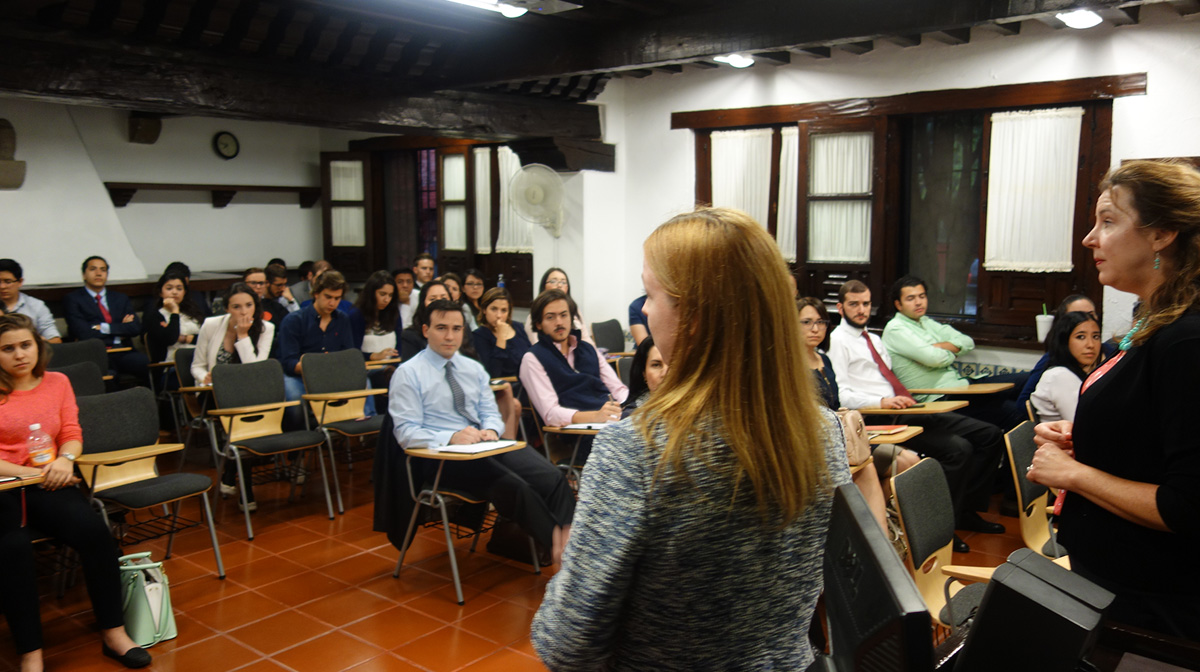Supporting the Pro Bono Movement in Mexico

Posted on 28 September 2015 by Crystal Doyle
Though younger lawyers in the United States have come to take institutionalized pro bono for granted, it is actually a fairly recent phenomenon, having only come into existence as a common concept in the 1970s and not really taking on speed until the 1980s and 1990s. A similar movement has been gaining momentum in Mexico since the early 2000s, led by, among others, New Perimeter partner organization Appleseed Mexico. As part of this effort, DLA Piper lawyers have been sharing their knowledge and experience of pro bono programs with students and organizations in Mexico since 2008. The hope is to share lessons from the American pro bono movement and encourage students to become leaders in the development and expansion of a culture of pro bono in the Mexican legal profession.
I was fortunate to participate in this project for the first time in August when I traveled to Mexico City with Lisa Dewey, the firm’s pro bono partner and Director of New Perimeter, to teach general pro bono courses to law students at Universidad Panamericana (UP) and Tecnológico de Monterrey. The courses provided a broad overview of fundamental pro bono concepts such as potential case types, sourcing cases, making the “business case” for pro bono and structuring a successful pro bono program at a law firm. Gabriela Alaña, Jorge Stepensky, and Karla Mendez from the Mexico City office of DLA Piper also attended the class at UP and encouraged students to engage in pro bono work.
Initially, I was a little concerned that the information might be too dry or the students would not be interested. My worries were completely unfounded. When we asked them to describe in one word why they went to law school, students immediately called out “social justice,” “freedom,” “equality,” and “community.” In both classes it took a lot of prompting to get students to say anything about the financial rewards or prestige of the profession. The students also had a keen interest in a wide variety of areas where lawyers might lend pro bono assistance, including anti-human-trafficking efforts, criminal defense, tax relief for the poor, animal rights and family law issues. I was delighted that each class felt like an enthusiastic conversation that could have happily gone on for several more hours had there been time.
While the hard work of creating the structures and making the case for pro bono will be up to the students once they graduate, I was so honored to have been able to help in even a small way by sharing information and generating discussion. I am thrilled to be returning later this year to teach classes at several universities on pro bono work in service of domestic violence survivors.
Supporting the Growth of Pro Bono in Mexico
